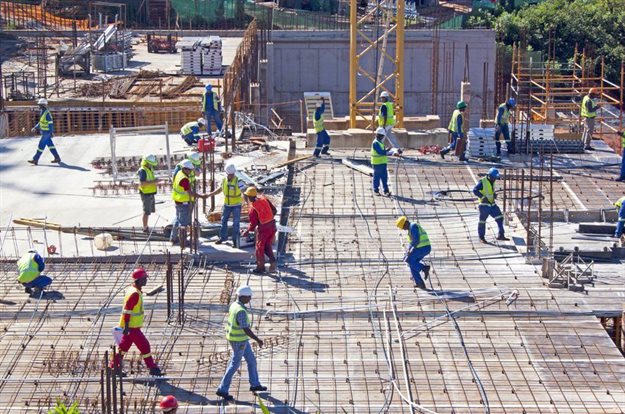Deon van Zyl, chair of the Western Cape Property Development Forum (WCPDF), believes there is a great deal of expectation on this very pipeline to help resurrect the private sector within the property development and construction industry.
“Ironically,” notes Van Zyl, “it is, to a large extent, the way in which the public sector has tied up our industry in red tape and legislation for years that has led to the critical situation we are now in. Especially when it comes to procurement − which includes tendering − as well as planning and building approval processes.”
The WCPDF itself has delivered comment on behalf of the industry against the Draft Public Procurement Bill, noting that while the organisation believes the Bill is a valiant attempt at ensuring that procurement becomes more transparent and uniform across the country, it remains to be seen if the culture of change which the Bill proposes will filter down to local municipal levels, where the biggest problems lie.
Resource-intensive process
Chris Botha, chief operating officer of civil engineering and construction company Civils 2000, agrees. The company has itself been in operation since 1992 in both construction as well as plant and machinery hire to the local construction sector. With tendering for projects in both the civil and private space being a very resource-intensive process at the best of times in terms of estimating and pricing, he notes: “Most contractors hope to have a funnel of work and to convert at least 10% of projects tendered into awarded projects.”
However, a huge frustration in terms of government projects is the withdrawal of tenders resulting in no awards being made at all, notes Botha: “And this is something that we’ve seen increase substantially over the past 12 to 18 months.”
Private sector hindered by red tape
Van Zyl adds that, with government’s own inability to get its projects to market, the construction industry is desperate for private sector projects to hit the ground: “Yet applications by the private sector are also severely hindered by government red tape and ineffective bureaucracies, with statutory approvals required just being too slow for projects to remain economically viable.
"This means that private projects stagnate due to rising costs even before a shovel hits the ground, and thousands of planned jobs in for construction workers in the most vulnerable of communities never materialise.
“So the contracting industry is being penalised on both public and private sector projects. Government is not spending money on its projects and is also actively delaying the spending by private sector clients on their own projects due to delays in processing applications,” explains Van Zyl.
On the hopes of achieving stability in the industry via the president’s proposed SIDSSA projects, Botha notes: “Any information that comes to the market and promises work is obviously good news for us. However, with the pain that the industry has had with the folding of many of the larger construction companies, we now need to see what the actual timelines will be of those promises unfolding.
After all, he says: “We’ve had the National Development Plan that’s been around since 2012 and how much of that have we seen?”
Public sector extreme competitive
While Civils 2000 is in a position to enjoy a “50/50 balance between work for the public versus the private sector”, Botha admits that "on the public sector side, it’s extremely competitive and has become a very costly process just to tender”.
He cites the example of a recent large public sector project the company tendered for in East London: “In terms of manpower hours and out-of-pocket expenses, the tender process alone cost us about R400,000.”
However, at the end of the day, the local authority decided to go with a lower-priced win which, he says, resulted in the technical aspects of the project slip substantially – a common occurrence among numerous municipalities, according to Botha.
“That’s extremely frustrating because you hope most of your clients have the technical interests of a project to heart when they consider what they are buying. But, unfortunately, in the Western Cape, at municipality and sometimes even at provincial level, there seem to be different motivators to awarding projects,” says Botha.
Government tenders risky

Deon van Zyl, chair of the Western Cape Property Development Forum (WCPDF)
Van Zyl believes that trying to do work for government is becoming too costly for the private property industry and the process too risky, leading often to expenditure on the part of the tenderer that will never be recouped: “The very process of government trying to limit its own exposure to frivolous and wasteful expenditure is causing the private sector to incur frivolous and wasteful expenditure on its part.”
These are among the many concerns that the WCPDF has also noted in its response to the Procurement Bill, says Van Zyl, explaining that procurement procedures in the past have also been unable to distinguish between the procurement of day-to-day commodities versus the procurement of fixed capital investment assets and associated services.
“It may be fair to procure the lowest prices on consumables,” explains Van Zyl. “But to consider only the lowest prices on tenders aimed at building fixed capital assets, which are meant to serve the country for decades to come, should carry a strong weighting towards being ‘fit for purpose’ rather than just about price.
“If this is not acknowledged by the new Bill, then the government will continue to be guilty of not only wasting taxpayers’ money, but even putting the wellbeing of citizens at risk when the cheapest builds result in unsound structures. Something we are now seeing increasingly, particularly in the affordable housing market,” says Van Zyl.
The WCPDF will address this issue in its last 'In Conversation' webinar, titled “Procurement – impeder or enabler in infrastructure delivery”, to be held on Thursday, 19 November, 2-4pm.






































